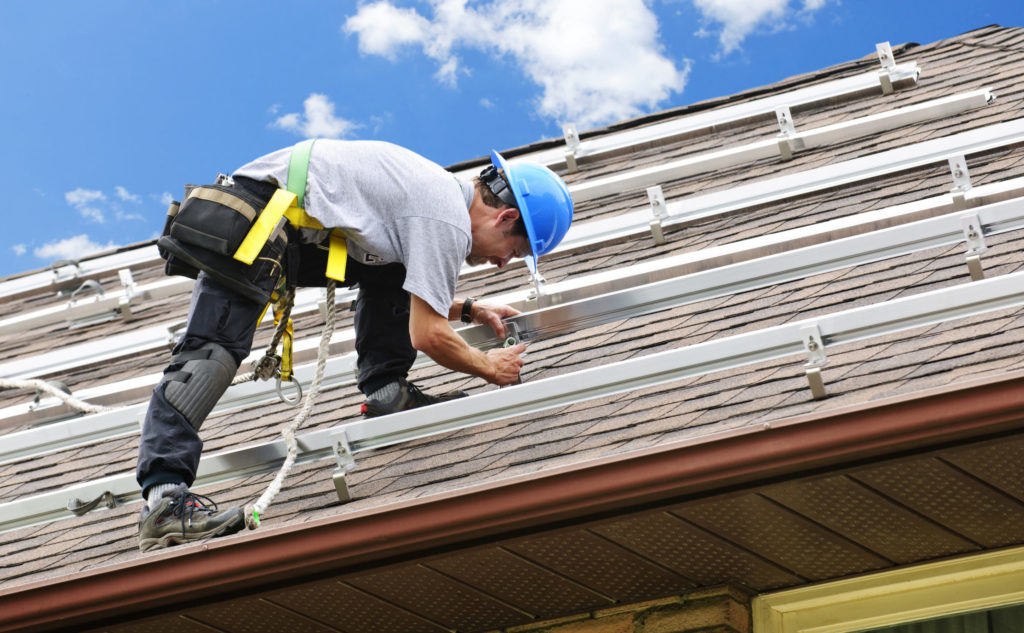If you want to install solar panels in your home, you can turn to solar services. But before you hire a solar panel installer, you should know what solar services are available. Read on to learn what these services are and whether they are available in your area. Then, you can choose the solar panel installer that is right for you.
What are Solar Services?
Solar service companies focus on the long-term maintenance and servicing of their client’s solar power systems. These companies are paid to ensure that their customers’ solar power systems function properly and are safe to live in. The service packages from these companies can take care of all maintenance and repair needs. The service providers also offer guarantees against deterioration and damage. These services provide customers with a wide range of solar power system maintenance options. These services include annual inspections and a comprehensive monitoring system. The monitoring providers will perform remote analysis of solar power system performance. In addition to this, they will alert customers of any issues that arise with their system. In addition, many of these services include physical inspections.
Solar services can also help homeowners save money. A solar contractor can perform a home energy audit to identify the areas in the home that are inefficient and where they can take energy-saving steps. These energy-saving measures can include switching to more efficient lighting and appliances. A solar contractor can also assess shade-producing trees in order to reduce the amount of solar energy your home will require.
What Are the Kinds of Solar Panel Services?
Solar panel services encompass a variety of different activities, from initial evaluation and assessment to installation and maintenance. In many cases, solar panel service providers will also offer procurement services, helping customers secure the best possible pricing on panels and other equipment. Additionally, some providers may offer energy storage solutions, which can help to maximize the efficiency of a solar panel system. Regardless of the specific services offered, all solar panel service providers share one goal: to help their clients save money on their energy bills.
What Kind of Solar Panel Should I Choose?
The kind of solar panel you need depends on several factors. You should know your energy needs, the type of roof you have, and the slope of your roof. You should also know whether you can benefit from local solar rebates and incentives. Lastly, you should inquire about local homeowners association regulations. There are three basic types of solar panels. They are monocrystalline, polycrystalline, and thin film. Monocrystalline panels are the most efficient and affordable. Polycrystalline and thin-film panels are the least efficient but are suitable for most locations with seasonal temperature fluctuations. Thin-film panels have a lower temperature coefficient, making them suitable for warmer climates and areas with more sunlight year-round.
You can choose among three different types of solar panels, each of which has its own advantages and disadvantages. Choosing a polycrystalline solar panel is the most economical if you have a large space. However, if you have a small space, a monocrystalline panel will help you maximize your energy savings.
Are Solar Services Available in All States?
There are a number of solar companies that offer services in a few states, while there are also companies that cater to all 50 states. Your local regulations and policies may determine which companies can operate in your state. In addition, you should consider the size of the company and the number of employees and technicians. You should also consider how responsive they are, especially in the event of an emergency. One of the first things you should look at when choosing a solar company is whether they offer services in your state. Some companies are national and have served every state, while others are regional in nature and serve only specific states. It is important to know which companies are available in your area and whether or not they offer the type of solar equipment you need.
You can also check for rebates and incentives in your state. Many utilities offer rebates to encourage their customers to switch to solar. Some states require utilities to source a portion of their electricity from solar sources. For example, in California, utilities are required to purchase a portion of the power generated by rooftop solar systems. These are called solar renewable energy credits or SRECs. The credits that a solar company sells you will represent one megawatt-hour of electricity produced, and you can then sell it to a utility with a legal obligation to source renewable power.

Should You Get a Solar Panel Installer?
If you want to get the most out of your solar system, it’s best to have it professionally installed. Do-it-yourself projects may be fun, but they won’t provide the same financial returns as a professionally installed system. DIY solar panels are best suited for tiny houses, sheds, and other smaller spaces. But if you’re aiming for a full-size home, you should hire a professional solar panel installer. While a professional installation may cost you more money upfront, you’ll receive expert installation and full tax benefits.
How Do I Choose a Solar Installer?
When you are choosing a solar panel installer, consider whether they have the appropriate training, experience, and insurance policies. You also need to consider whether they are licensed in your area. It is also important to find out if they are certified by the North American Board of Certified Energy Practitioners. Solar panel installation is a time-consuming process. Depending on the system size, it can take up to three days. If you require a power meter, this will add to the time required. The installer should be able to give you an estimated timeline and commit to it. The installer may not be able to control the timelines of permits and utility company inspections, so you should look for a company that can commit to meeting the timeline.
How Much Does It Cost to Install a Solar Panel?
The cost of installing a solar panel in Pennsylvania can vary widely. Depending on your location, you may have to pay state and local permits as well as installation fees. Some solar panels are also subject to tax credits. As the number of people adopting solar power increases, costs will continue to fall. According to the National Renewable Energy Laboratory (NREL), installed prices of solar panels have declined by 13% to 18% in the last five years. Before you make a final decision, you should talk with a local solar professional about the latest costs.
The average cost of a residential solar panel system is around $19,200. Prices are typically based on the wattage of the system. This price can vary depending on your location and the features that you need. For example, in Arizona, prices can start at $14,000 and go as high as $24,000. On the other hand, prices in Michigan can start at $18,600.
How Often Do You Have to Replace Solar Panels?
A properly maintained solar panel can last up to twenty to thirty years. If you regularly clean and maintain your panels, you can extend their life and improve their productivity. However, if your solar panels are deteriorating in quality, you may need to replace them. You can keep an eye on your panels’ performance with a tracking device. Keeping track of energy output can help you spot problems in a timely manner. For example, if your solar pool heating isn’t working long enough or your solar panels only produce 30 kWh of electricity every week, you may need to replace them.
Debris and falling tree limbs can cause damage to your panels. They can cause scratches and microcracks. Debris can also cause pressure on the panels. Even small branches can pile up on your panels, causing them to crack. To avoid this problem, consider hiring a licensed solar company to inspect your solar panels and provide an estimate for replacement.
How Do You Clean Solar Panels?
The first step in cleaning solar panels is to remove any loose debris, such as bird droppings, leaves, or dust. This will help reduce the chance of smears when the panels are cleaned with water. You can also use a soft brush to remove surface debris. Once you have removed the debris, you can spray the panels with a soft cleaning fluid. You should also note that the panels must be turned off before cleaning. This is necessary for safety reasons. You should never clean them while they are still operating; otherwise, you may get shocked. If you’re unsure about how to clean solar panels, you can consult your manufacturer for instructions. You may also want to call in a professional tradesperson to perform this task for you.
Solar panels should be cleaned every few months. To do this, you’ll need a hose or bucket of warm water. The best cleaning solution for your panels is a mixture of dish soap and warm water. Make sure to use a nonabrasive sponge when applying the soapy water. Also, avoid high-pressure water sprayers, as they may damage the panels.
Are Solar Services Worth It?
In states where the sun is highest, solar panels can produce as much as 25% more electricity than homes in areas with less sunlight. If you want to know whether solar is worth the money you spend, take a look at your most recent energy bill. If you are a business owner, you might also want to check if the solar power is enough to keep operations going or if you’ll need to go on the grid to be safe. Solar service providers charge their customers a small fee for solar electricity. This fee is usually between $0.10 and $0.17 per kilowatt-hour. In the long run, this can save a homeowner a lot of money. For example, many solar installers estimate that solar electricity can save their customers as much as 5 percent. Electric rates in New Jersey have been increasing by around 3.8% annually, according to the Energy Information Administration. However, the cost of solar leases is often higher than the savings from federal tax credits, available rebates, and potential SREC income.
Solar service providers are able to offer a variety of financing options. If you purchase a solar panel system, you will typically pay back the cost within eight to 12 years. A solar company with a long track record will have a payback period that falls within this range. However, if you are planning on leasing a solar panel system, you should consider the payback time.
